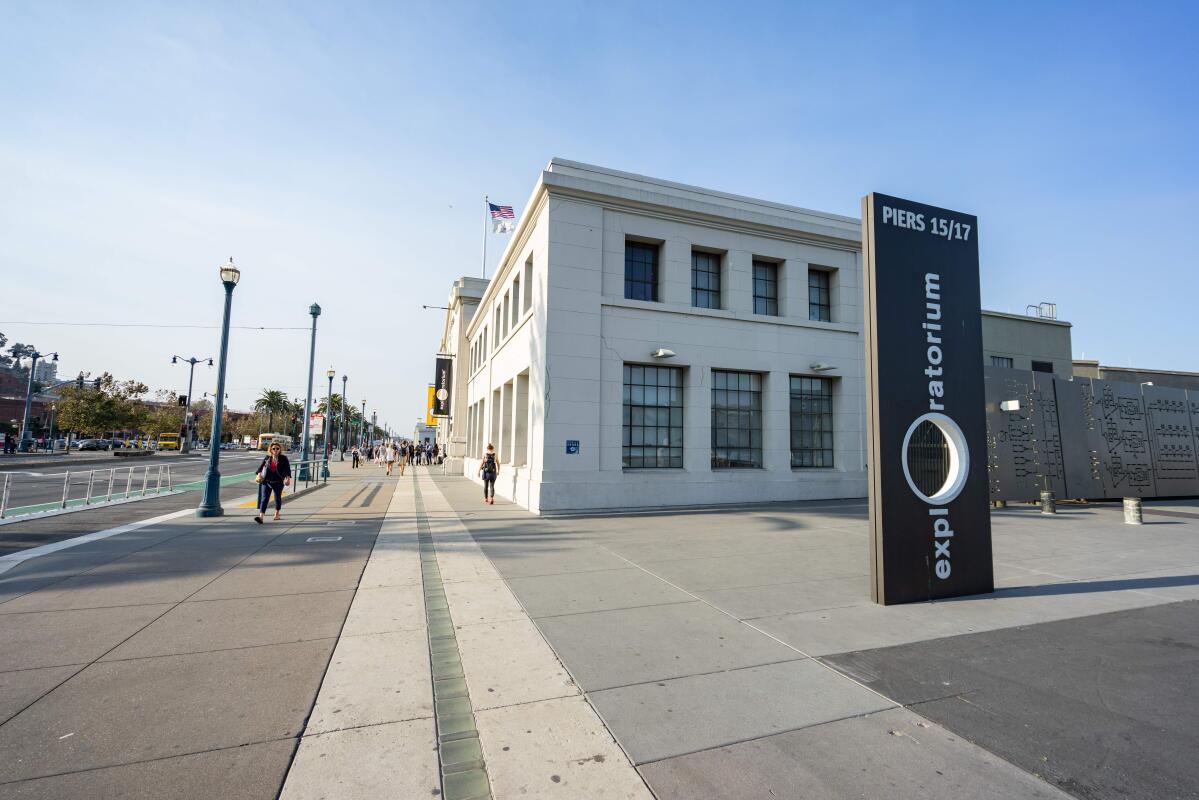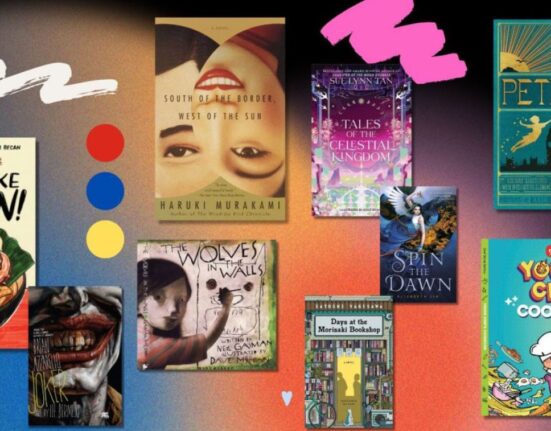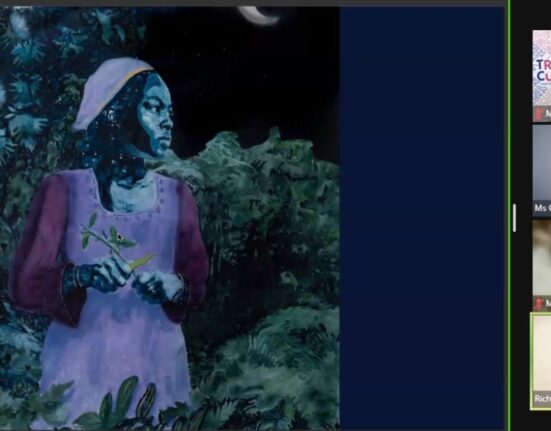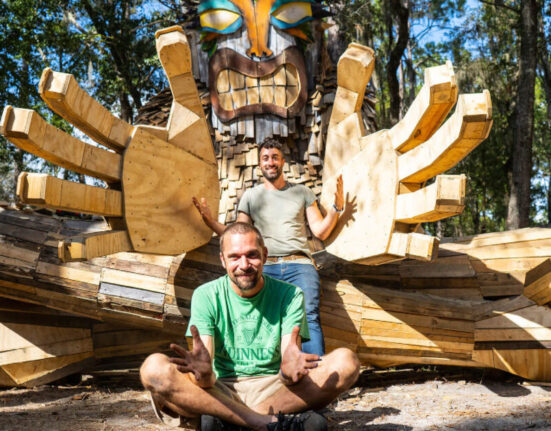This summer, the Exploratorium and the Fondation Cartier pour l’art contemporain in Paris are pleased to present the West Coast premiere of “The Great Animal Orchestra,” a collaborative work between pioneer soundscape ecologist Bernie Krause and United Visual Artists.
As part of the institution’s supporting public programming, Vincent Tricon, an award-winning French filmmaker and director of “Bernie Krause: A Life with the Great Animal Orchestra,” will join artist Krause in conversation on Thursday, Sept. 28 at 7 p.m.
Over the course of more than 50 years, Krause has collected thousands of hours of recordings of natural environments, including at least 15,000 identified terrestrial and marine species globally.
Running through Oct. 15, 2023, at Pier 15 in San Francisco, the exhibition invites visitors of all ages to step into an immersive audiovisual art experience that celebrates our planet’s rich sonic biodiversity and raises awareness of its alarming decline.
Krause is nearly a lifelong resident of the Bay Area and his research offers a mesmerizing immersion into the acoustic world of animals, a field of study known as “soundscape ecology.”
Before developing a passion for recording wild soundscapes, Krause worked as a musician and sound designer in the 1960s and 1970s, collaborating with artists such as The Doors and Van Morrison, and joining the Weavers in 1963. With his music partner, Paul Beaver, he helped introduce the Moog synthesizer to pop music and film, and their work can be heard on more than 250 albums and in 135 feature films.
Krause contemplates the natural world as a poet. He listens to animal vocalizations with a musician’s ear and studies his field recordings from the perspective of a scientist. He has become a master in the art of revealing the beauty, diversity and complexity of the collective voices of wild animals increasingly silenced by the din and intrusion of human activity.
He implores us to listen to these narratives from the living, nonhuman world before they are forever “general information” silenced. Visitors are invited to further investigate the phenomena of sound in related exhibits throughout the Exploratorium.
“This exhibition has been in the making for more than 50 years, when Bernie first met Exploratorium founder Frank Oppenheimer while recording soundscapes in San Francisco,” said Lindsay Bierman, executive director of the Exploratorium, in a news release. “Bernie recognized that these recordings were capturing a unique, nonhuman perspective that could not be experienced in any other way, and they were accessible to anyone willing to take the time to listen.
“We are immensely grateful to Bernie, UVA and the Fondation Cartier for bringing The Great Animal Orchestra full circle and home to the Exploratorium, where it furthers our vision of stimulating awareness and understanding of the world through art and science.”
The Great Animal Orchestra was commissioned by the Fondation Cartier for its eponymous exhibition in 2016 and is now part of its permanent collection. After reading Krause’s book by the same name and later visiting his home in Sonoma County, Hervé Chandès, the Fondation Cartier’s artistic managing director, conceived of the idea for an immersive audiovisual realization of Krause’s archived recordings.
Fondation Cartier introduced Krause to United Visual Artists, the London-based visual arts practice led by Matt Clark, whose installations and collaborations integrate new technologies and traditional media.
To produce The Great Animal Orchestra, Krause created a composite of seven different marine and terrestrial habitats from around the world. United Visual Artists developed a computer software that creates extraordinarily detailed, immersive, streaming spectrograms generated by the soundscapes.
These, in turn, form real-time visual interpretations of the various sites and times of day where and when Krause’s original recordings were made. In its newest iteration at the Exploratorium, the exhibition will be presented in a soundproof, stand-alone gallery with enhanced LED components.
“The Great Animal Orchestra is one of our most often exhibited and popular works, and we’re thrilled that as we celebrate UVA’s 20th anniversary in 2023 it is on display again, as its fundamental message about the diversity and fragility of the planet’s species is more relevant and timelier than ever,” Matt Clark of United Visual Artists said in a news release.
Surrounding the periphery of the acoustic images is a subtle natural component — a border of water. For visitors, the shallow moat might go unnoticed until it ripples subtly at the sounds of insects, or quivers in waves, reverberating the elephant’s low-frequency roar and claps of distant thunder.
In this environment, “general information” visitors are guided into the interrelationship of the many species performing in the world’s own soundtrack of life.
Part of the full artwork, The Great Animal Orchestra, is an opening sequence by filmmakers Raymond Depardon (born in 1942 in Villefranche-sur-Saône, France) and Claudine Nougaret (born in 1958 in Montpellier, France), both of whom have collaborated on several projects with Fondation Cartier since 1996.
Here, Krause explains his methodology and introduces five short audio clips of natural habitats in which biodiversity has drastically deteriorated in recent decades.
Depardon — a documentary photographer, photojournalist and filmmaker — and Nougaret — a producer, filmmaker and sound engineer — are known for using documentary as well as fictional narratives to engage with contemporary realities. They reside in Paris.
Alongside the exhibition, French filmmaker Tricon’s documentary, produced by the Fondation Cartier, “Bernie Krause: A Life with the Great Animal Orchestra,” will also be screened. The film premiered at “The Great Animal Orchestra” presentation at Peabody Essex Museum in 2021, made its New York debut at the French Institute: Alliance Français’ CinéSalon in 2022, and won Best Documentary at the Los Angeles CineFest in January 2023.
Composed of archival footage and interviews filmed in California in 2021, the film follows Krause through Sonoma County, where he lives with his wife and partner, Katherine.
Visit exploratoirum.edu for more information on the exhibit and registration details.






